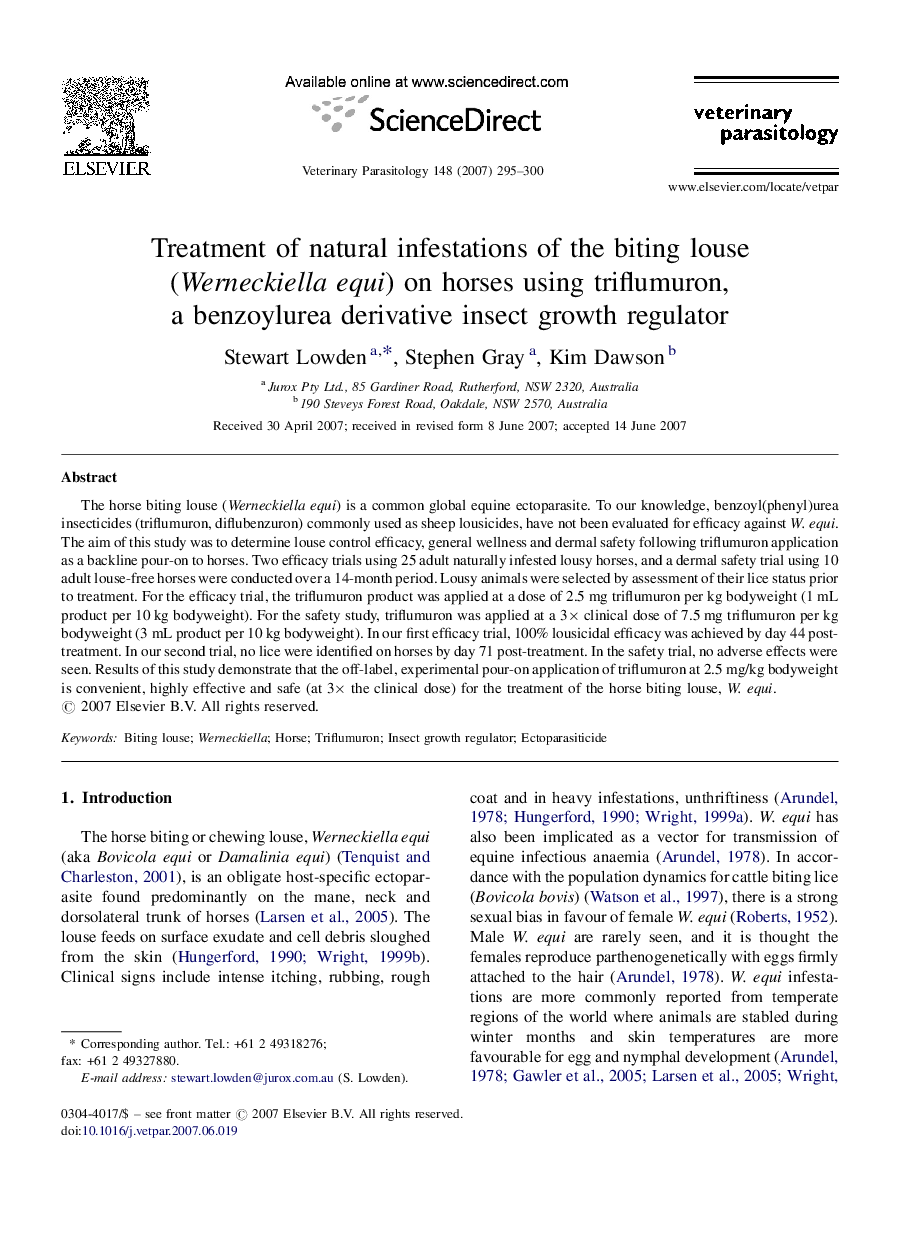| Article ID | Journal | Published Year | Pages | File Type |
|---|---|---|---|---|
| 2472026 | Veterinary Parasitology | 2007 | 6 Pages |
The horse biting louse (Werneckiella equi) is a common global equine ectoparasite. To our knowledge, benzoyl(phenyl)urea insecticides (triflumuron, diflubenzuron) commonly used as sheep lousicides, have not been evaluated for efficacy against W. equi. The aim of this study was to determine louse control efficacy, general wellness and dermal safety following triflumuron application as a backline pour-on to horses. Two efficacy trials using 25 adult naturally infested lousy horses, and a dermal safety trial using 10 adult louse-free horses were conducted over a 14-month period. Lousy animals were selected by assessment of their lice status prior to treatment. For the efficacy trial, the triflumuron product was applied at a dose of 2.5 mg triflumuron per kg bodyweight (1 mL product per 10 kg bodyweight). For the safety study, triflumuron was applied at a 3× clinical dose of 7.5 mg triflumuron per kg bodyweight (3 mL product per 10 kg bodyweight). In our first efficacy trial, 100% lousicidal efficacy was achieved by day 44 post-treatment. In our second trial, no lice were identified on horses by day 71 post-treatment. In the safety trial, no adverse effects were seen. Results of this study demonstrate that the off-label, experimental pour-on application of triflumuron at 2.5 mg/kg bodyweight is convenient, highly effective and safe (at 3× the clinical dose) for the treatment of the horse biting louse, W. equi.
